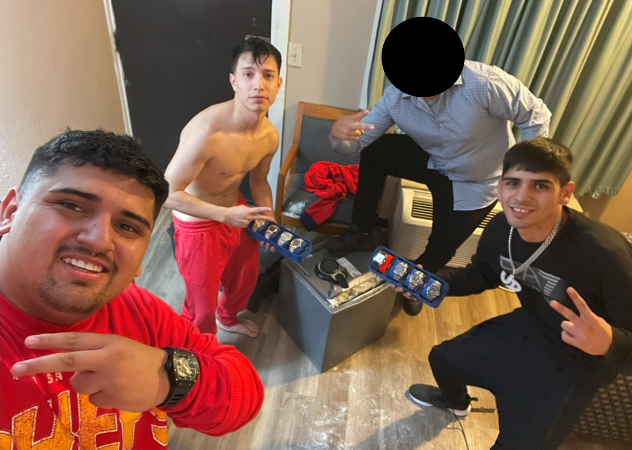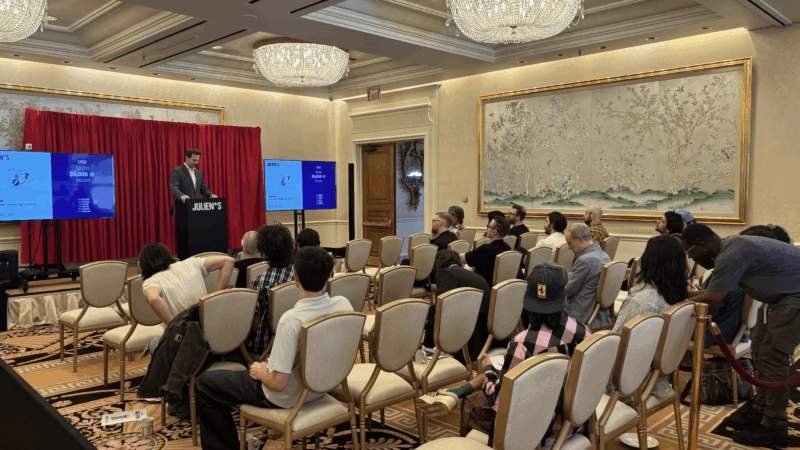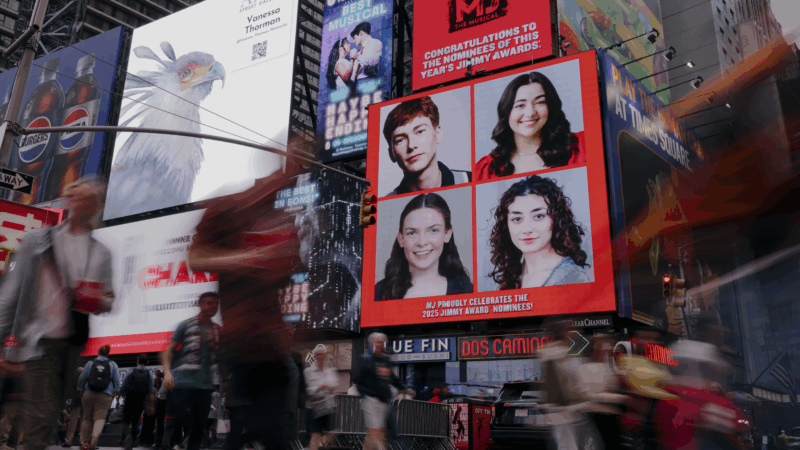Seven Chilean men are charged with stealing millions from high-profile athletes’ homes
Seven Chilean men are facing federal charges in Florida related to a series of high-profile “crime tourism” burglaries of six professional athletes’ homes across the country between October and December.
Court documents don’t identify the athletes targeted by the international crime ring by name. But they include details that align with burglaries at the homes of NFL stars Patrick Mahomes and Travis Kelce of the Kansas City Chiefs and Joe Burrow of the Cincinnati Bengals.
Players from the NFL’s Tampa Bay Buccaneers and the NBA’s Milwaukee Bucks and Memphis Grizzlies were also victimized, according to an affidavit filed as part of the federal criminal complaint.
Prosecutors in Florida’s Middle District announced the charges on Tuesday, adding to criminal counts that some of the men already face in state and federal courts in Ohio, where Burrow’s home was burglarized in December.
Stolen goods in the cases include luxury items like racks of Rolex watches, along with jewelry and Louis Vuitton suitcases.
In all, prosecutors say, the stolen goods and cash total millions of dollars. Court documents don’t provide precise totals for each burglary, but items worth an estimated $1,484,000 were stolen from a Milwaukee Bucks player in November, while a Memphis Grizzlies player lost about $1 million in goods in December.
The men listed in the criminal complaint are: Pablo Zuniga Cartes, Ignacio Zuniga Cartes, Bastian Jimenez Freraut, Jordan Quiroga Sanchez, Bastian Orellano Morales, Alexander Huiaguil Chavez and Sergio Ortego Cabello.
When NPR contacted the federal public defender’s office in Tampa, it declined to comment on the case.
The FBI believes the seven Chilean men are part of a South American Theft Group — the term law enforcement uses to describe small groups of thieves breaking into high-end houses in coordinated crimes around the country. The burglars have often come to the U.S. illegally, or have overstayed their visas, according to law enforcement agencies.
As in the cases involving pro athletes, the burglars routinely take only luxury items and cash.
An affidavit in the federal complaint describes how investigators tracked down the suspects, collating data from cellphone towers and license plate readers to look for phone numbers and cars that could be linked to the crime scenes.
The FBI then secured search warrants to access several Apple iCloud accounts — and one allegedly belonging to Cartes held photos that “show him and others with the jewelry of Professional Athlete 4 within minutes of his being burglarized,” the affidavit states.
The FBI has identified strategies used by these groups engaging in “crime tourism,” in which international burglary teams travel across the U.S. to steal from homes in affluent areas. Crime ring members rent cars in Florida using fake IDs, drive to the home of an athlete they know is playing in a game, and break in. Along the way, the criminals are believed to cycle through temporary phone accounts.
The recent round of high-profile burglaries has renewed scrutiny of Chile and its participation in the Visa Waiver Program, which allows foreign nationals to visit the U.S. without a visa. Chile is the only country in South America with VWP status.
When reached by NPR for comment about the criminal cases, a spokesperson for Chile’s embassy in the U.S. noted that the country signed an agreement in 2023 to share more information about visitors.
The embassy spokesperson also said that since last September, U.S. Homeland Security has been able to get real-time criminal record information for anyone applying to travel to the U.S. They say the change has meant more Chileans with criminal backgrounds are being denied visa-free travel to the U.S.
Transcript:
SCOTT DETROW, HOST:
Robberies at a string of NFL and NBA athletes’ homes have generated headlines lately, and now the FBI says they’re part of an international crime ring. NPR’s Bill Chappell has been following the story and joins us now. Hey, Bill.
BILL CHAPPELL, BYLINE: Hi, Scott.
DETROW: So tell us about the developments in these cases.
CHAPPELL: So in a new court case in Florida, seven Chilean men are now facing federal charges. An FBI affidavit alleges the men had been working together to steal jewelry and luxury items from high-end homes. They’re charged with conspiring to transport stolen items across state lines from early October into December.
DETROW: I mean, we’re talking about thefts of high-profile athletes’ homes. We’re talking about international crime rings. This has gotten a lot of attention, but how many cases are we talking about here?
CHAPPELL: So the FBI says there were six cases where pro athletes had their homes broken into when they were out, often playing at games. The affidavit doesn’t say their names, but the information lines up with stars like Kansas City’s Patrick Mahomes and Cincinnati’s Joe Burrow. It also mentions players from the Memphis Grizzlies and the Milwaukee Bucks. In all, they say the stolen goods and cash adds up to millions of dollars.
DETROW: Some of the people arrested were already facing other charges. Tell us what we know about them.
CHAPPELL: Right, so some of that’s from the Ohio case with Joe Burrow. There are state and federal charges against four guys there. The FBI says there’s a pattern and what they call a South American theft group, where thieves have been breaking into these houses in a coordinated way around the country. Law enforcement agencies said they often came into the U.S. illegally or overstayed their visas, discussing the suspects. And the FBI says they usually rent a car in Florida, use a fake ID, go through temporary phone accounts and then drive to a home of an athlete and break in. They usually take only high-value items like Rolex watches, jewelry and Louis Vuitton suitcases.
DETROW: How has Chile responded to this news?
CHAPPELL: So it’s taking it very seriously, especially because Chile is the only country in South America that has special access for people to visit the U.S. under what’s called the Visa Waiver Program. In the past few years, state and federal officials have been saying foreign criminals are abusing the program. And in 2023, those concerns led to the U.S. and Chile signing a new information-sharing agreement. I asked the Chilean Embassy about this case and the new case in Florida. And they said, you know, as of last September, Homeland Security in the U.S. has been able to get real-time criminal records of anyone applying for travel for the U.S. under this program. They say more Chileans with criminal backgrounds are being denied travel privileges to the U.S. because of that.
DETROW: Interesting. That is NPR’s Bill Chappell. Thank you so much.
CHAPPELL: Sure thing. Thank you.
The David Lynch estate auction doubled as a caffeinated wake
Most of the bidding action was online. But at a ritzy Beverly Hills hotel, hopeful bidders united by genuine affection for Lynch admired the tools of the late artist's trade. It was a mirthful wake.
An AI video ad is making a splash. Is it the future of advertising?
The over-the-top ad combines the energy of Grand Theft Auto with the drama of the NBA Finals — all created by AI. Is it a sign of things to come?
‘It’s such a dream’: Top high school performers step out on Broadway
With a billboard in Times Square and a night on Broadway, the year's top high school performers are ready for their big moment at the Jimmy Awards.
4 takeaways on the U.S. airstrikes on Iran — and what might come next
The Trump administration said its strikes were intended to prevent Iran from developing a nuclear weapon. Now, Iran weighs a response against what it called an "outrageous" military operation.
Ahead of this week’s NATO summit, Europe is uncertain about its old ally, the U.S.
This year's NATO summit opens Tuesday, attended by a disengaged United States, which seems bent on fighting its own battles, rather than helping European allies with the increased threat from Russia.
Tick risks vary by region. Here’s where diseases have spread and how to stay safe
Tick bites are are on the rise this and they can carry some nasty illnesses. Which are most common depends where you live. Here's what to know to protect yourself.








